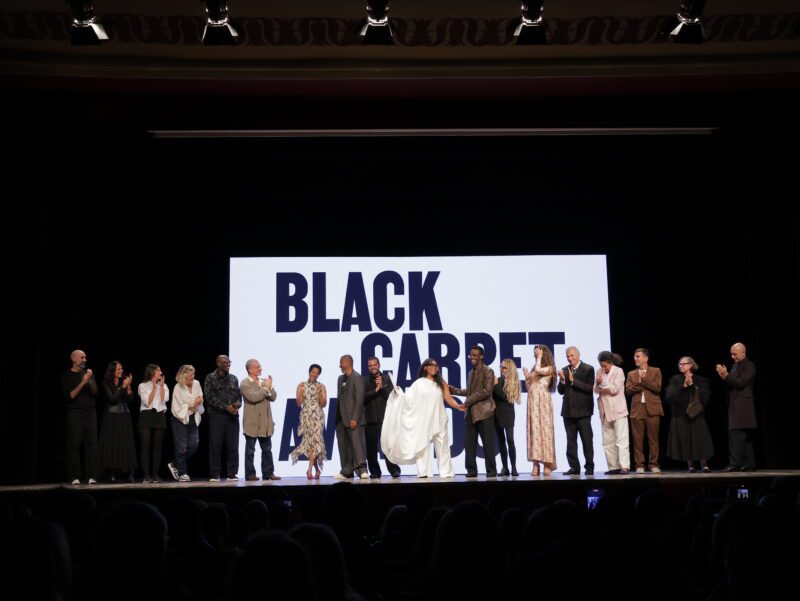MILAN, ITALY — In recent years, inclusion and representation in the creative industry have gained important momentum across the system’s fixtures, after centuries of exploitation that saw Black and Brown folk being demonised by supremacist beliefs and attitudes.
In Milan, the Black Carpet Awards have established themselves as a must-attend event on the Milan Fashion Week Women’s calendar: a crucial opportunity to reflect, celebrate, and promote a more inclusive vision of society.
The Godmother of the 2025 edition was Naomi Campbell, international supermodel and long-time activist for representation and equity in the fashion industry. The evening was hosted by Tamu McPherson, Founder of Shoe Up for Justice, and Corporate Social Responsibility Ambassador for Bvlgari.

The Black Carpet Awards 2025
In the evening, the awards ceremony for the third edition of the Black Carpet Awards was held at Teatro Manzoni in Milan, under the patronage of the City of Milan and with the support of Camera Nazionale della Moda Italiana. Organised by the Afro Fashion Association, the event celebrates Leaders of Change, individuals from all origins and backgrounds who have distinguished themselves through concrete efforts to promote Diversity, Inclusion, and Equity within the creative industry.
This edition was particularly significant, coinciding with the tenth anniversary of the Afro Fashion Association. During the evening, the ten winners of the Leaders of Change awards were announced, selected from twenty-two finalists across five categories.
For each category, two winners were chosen: one selected by the jury and one by the public. This year’s One-Time Award was dedicated to the memory of Koyo Kouoh, the recently deceased curator whose vision and artistic work made a significant contribution to the promotion of African and diasporic art in Italy.
Among the most anticipated moments was the presentation of The New Wave, a video showcasing ten creative talents from around the world. “In a world that often builds walls instead of breaking them down, the Black Carpet Awards aim to remind us that there are voices capable of uniting rather than dividing, and above all that representation creates access,” opined Michelle Ngomo.
“We created the Afro Fashion Association and the Black Carpet Awards to give visibility to those who have been invisible for too long, offering a platform to those who simply ask to be heard. Today, more than ever, it is essential to build rather than destroy, to celebrate differences, and to transform them into collective strength”, she concludes.
by Chidozie Obasi
